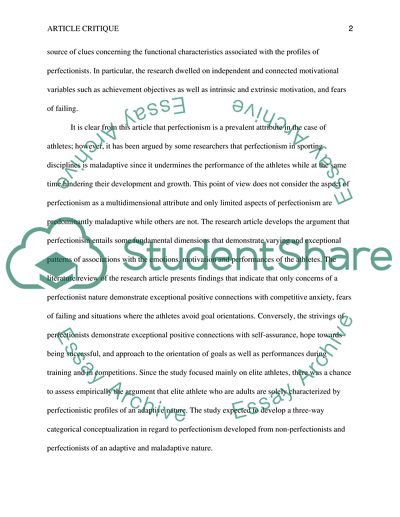Cite this document
(“Perfectionistic Profiles Among Elite Athletes and Differences in their Research Paper”, n.d.)
Perfectionistic Profiles Among Elite Athletes and Differences in their Research Paper. Retrieved from https://studentshare.org/sociology/1676704-perfectionistic-profiles-among-elite-athletes-and-differences-in-their-motivational-orientations
Perfectionistic Profiles Among Elite Athletes and Differences in their Research Paper. Retrieved from https://studentshare.org/sociology/1676704-perfectionistic-profiles-among-elite-athletes-and-differences-in-their-motivational-orientations
(Perfectionistic Profiles Among Elite Athletes and Differences in Their Research Paper)
Perfectionistic Profiles Among Elite Athletes and Differences in Their Research Paper. https://studentshare.org/sociology/1676704-perfectionistic-profiles-among-elite-athletes-and-differences-in-their-motivational-orientations.
Perfectionistic Profiles Among Elite Athletes and Differences in Their Research Paper. https://studentshare.org/sociology/1676704-perfectionistic-profiles-among-elite-athletes-and-differences-in-their-motivational-orientations.
“Perfectionistic Profiles Among Elite Athletes and Differences in Their Research Paper”, n.d. https://studentshare.org/sociology/1676704-perfectionistic-profiles-among-elite-athletes-and-differences-in-their-motivational-orientations.


